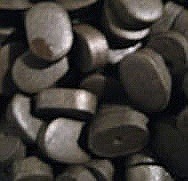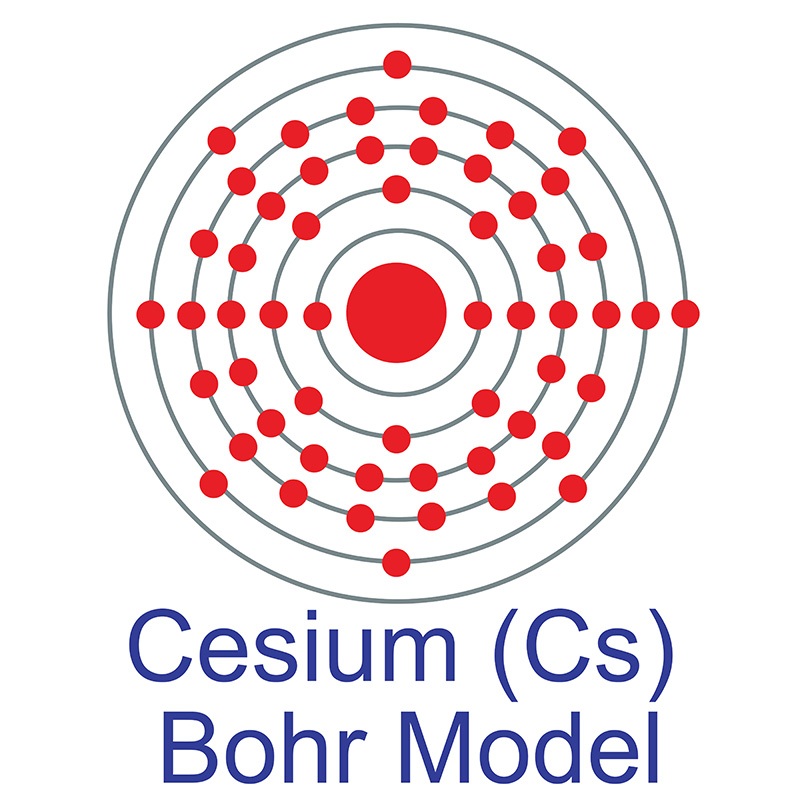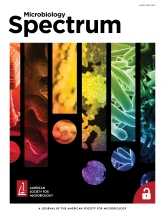SECTION 1. IDENTIFICATION
Product Name: Cesium Lump
Product Number: All applicable American Elements product codes, e.g. CS-M-02-L
, CS-M-03-L
, CS-M-04-L
, CS-M-05-L
CAS #: 7440-46-2
Relevant identified uses of the substance: Scientific research and development
Supplier details:
American Elements
10884 Weyburn Ave.
Los Angeles, CA 90024
Tel: +1 310-208-0551
Fax: +1 310-208-0351
Emergency telephone number:
Domestic, North America: +1 800-424-9300
International: +1 703-527-3887
SECTION 2. HAZARDS IDENTIFICATION
Classification of the substance or mixture
Classification according to Regulation (EC) No 1272/2008
GHS02 Flame
Water-react. 1 H260 In contact with water releases flammable gases which may ignite spontaneously.
GHS05 Corrosion
Skin Corr. 1B H314 Causes severe skin burns and eye damage.
Eye Dam. 1 H318 Causes serious eye damage.
Hazards not otherwise classified
No data available
Label elements
Labelling according to Regulation (EC) No 1272/2008
The substance is classified and labeled according to the CLP regulation.
Hazard pictograms


GHS02 GHS05
Signal word
Danger
Hazard statements
H260 In contact with water releases flammable gases which may ignite spontaneously.
H314 Causes severe skin burns and eye damage.
Precautionary statements
P231+P232 Handle under inert gas. Protect from moisture.
P260 Do not breathe dust/fume/gas/mist/vapors/spray.
P303+P361+P353 IF ON SKIN (or hair): Remove/Take off immediately all contaminated clothing. Rinse skin with water/shower.
P305+P351+P338 IF IN EYES: Rinse cautiously with water for several minutes. Remove contact lenses, if present and easy to do. Continue rinsing.
P405 Store locked up.
P501 Dispose of contents/container in accordance with local/regional/
national/international regulations.
WHMIS classification
B6 - Reactive flammable material
D2B - Toxic material causing other toxic effects
E - Corrosive material
Classification system
HMIS ratings (scale 0-4)
(Hazardous Materials Identification System)
HEALTH
FIRE
REACTIVITY
3
4
3
Health (acute effects) = 3
Flammability = 4
Physical Hazard = 3
Other hazards
Results of PBT and vPvB assessment
PBT:
N/A
vPvB:
N/A
SECTION 3. COMPOSITION/INFORMATION ON INGREDIENTS
Substances
CAS No. / Substance Name:
7440-46-2 Cesium
Identification number(s):
EC number:
231-155-4
SECTION 4. FIRST AID MEASURES
Description of first aid measures
General information
Immediately remove any clothing soiled by the product.
If inhaled:
Supply patient with fresh air. If not breathing, provide artificial respiration. Keep patient warm.
Seek immediate medical advice.
In case of skin contact:
Immediately wash with soap and water; rinse thoroughly.
Seek immediate medical advice.
In case of eye contact:
Rinse opened eye for several minutes under running water. Consult a physician.
If swallowed:
Seek medical treatment.
Information for doctor
Most important symptoms and effects, both acute and delayed
Causes severe skin burns.
Causes serious eye damage.
Indication of any immediate medical attention and special treatment needed
No data available
SECTION 5. FIREFIGHTING MEASURES
Extinguishing media
Suitable extinguishing agents
Special powder for metal fires. Do not use water.
For safety reasons unsuitable extinguishing agents
Water
Special hazards arising from the substance or mixture
Reacts violently with water
If this product is involved in a fire, the following can be released:
Metal oxide fume
Advice for firefighters
Protective equipment:
Wear self-contained respirator.
Wear fully protective impervious suit.
SECTION 6. ACCIDENTAL RELEASE MEASURES
Personal precautions, protective equipment and emergency procedures
Use personal protective equipment. Keep unprotected persons away.
Ensure adequate ventilation
Keep away from ignition sources
Environmental precautions:
Do not allow material to be released to the environment without official permits.
Methods and materials for containment and cleanup:
Keep away from ignition sources.
Use neutralizing agent.
Dispose of contaminated material as waste according to section 13.
Ensure adequate ventilation.
Do not flush with water or aqueous cleansing agents
Prevention of secondary hazards:
Keep away from ignition sources.
Reference to other sections
See Section 7 for information on safe handling
See Section 8 for information on personal protection equipment.
See Section 13 for disposal information.
SECTION 7. HANDLING AND STORAGE
Handling
Precautions for safe handling
Handle under dry protective gas.
Keep container tightly sealed.
Store in cool, dry place in tightly closed containers.
Ensure good ventilation at the workplace.
Reacts violently with water
Information about protection against explosions and fires:
Protect from humidity and water.
Conditions for safe storage, including any incompatibilities
Requirements to be met by storerooms and receptacles:
No special requirements.
Information about storage in one common storage facility:
Store away from water/moisture.
Store away from air.
Further information about storage conditions:
Store under dry inert gas.
Protect from humidity and water.
Keep container tightly sealed.
Store in cool, dry conditions in well-sealed containers.
Specific end use(s)
No data available
SECTION 8. EXPOSURE CONTROLS/PERSONAL PROTECTION
Additional information about design of technical systems:
Properly operating chemical fume hood designed for hazardous chemicals and having an average face velocity of at least 100 feet per minute.
Control parameters
Components with limit values that require monitoring at the workplace:
None.
Additional information:
No data
Exposure controls
Personal protective equipment
Follow typical protective and hygienic practices for handling chemicals.
Keep away from foodstuffs, beverages and feed.
Remove all soiled and contaminated clothing immediately.
Wash hands before breaks and at the end of work.
Avoid contact with the eyes and skin.
Maintain an ergonomically appropriate working environment.
Breathing equipment:
Use suitable respirator when high concentrations are present.
Protection of hands:
Impervious gloves
Inspect gloves prior to use.
Suitability of gloves should be determined both by material and quality, the latter of which may vary by manufacturer.
Penetration time of glove material (in minutes)
No data available
Eye protection:
Tightly sealed goggles
Full face protection
Body protection:
Protective work clothing
SECTION 9. PHYSICAL AND CHEMICAL PROPERTIES
Information on basic physical and chemical properties
Appearance:
Form: Solid
Color: Silver-colored
Odor: Odorless
Odor threshold: No data available.
pH: N/A
Melting point/Melting range: 28.4 °C (83 °F)
Boiling point/Boiling range: 671 °C (1240 °F)
Sublimation temperature / start: No data available
Flammability (solid, gas)
Contact with water liberates extremely flammable gases.
Ignition temperature: No data available
Decomposition temperature: No data available
Autoignition: No data available.
Danger of explosion: No data available.
Explosion limits:
Lower: No data available
Upper: No data available
Vapor pressure at 20 °C (68 °F): 0.0000011 hPa
Density at 20 °C (68 °F): 1.873 g/cm3 (15.63 lbs/gal)
Relative density
No data available.
Vapor density
N/A
Evaporation rate
N/A
Solubility in Water (H2O): Reacts violently
Contact with water releases flammable gases
Partition coefficient (n-octanol/water): No data available.
Viscosity:
Dynamic: N/A
Kinematic: N/A
Other information
No data available
SECTION 10. STABILITY AND REACTIVITY
Reactivity
Reacts violently with water.
In contact with water releases flammable gases which may ignite spontaneously.
Chemical stability
Stable under recommended storage conditions.
Thermal decomposition / conditions to be avoided:
Decomposition will not occur if used and stored according to specifications.
Possibility of hazardous reactions
Contact with water releases flammable gases
Reacts violently with water
Conditions to avoid
No data available
Incompatible materials:
Air
Water/moisture
Hazardous decomposition products:
Metal oxide fume
SECTION 11. TOXICOLOGICAL INFORMATION
Information on toxicological effects
Acute toxicity:
Swallowing will lead to a strong corrosive effect on mouth and throat and to the danger of perforation of esophagus and stomach.
The Registry of Toxic Effects of Chemical Substances (RTECS) contains acute toxicity data for this substance.
LD/LC50 values that are relevant for classification:
No data
Skin irritation or corrosion:
Causes severe skin burns.
Eye irritation or corrosion:
Causes serious eye damage.
Sensitization:
No sensitizing effects known.
Germ cell mutagenicity:
No effects known.
Carcinogenicity:
No classification data on carcinogenic properties of this material is available from the EPA, IARC, NTP, OSHA or ACGIH.
Reproductive toxicity:
No effects known.
Specific target organ system toxicity - repeated exposure:
No effects known.
Specific target organ system toxicity - single exposure:
No effects known.
Aspiration hazard:
No effects known.
Subacute to chronic toxicity:
No effects known.
Additional toxicological information:
To the best of our knowledge the acute and chronic toxicity of this substance is not fully known.
Carcinogenic categories
OSHA-Ca (Occupational Safety & Health Administration)
Substance is not listed.
SECTION 12. ECOLOGICAL INFORMATION
Toxicity
Aquatic toxicity:
No data available
Persistence and degradability
No data available
Bioaccumulative potential
No data available
Mobility in soil
No data available
Additional ecological information:
Do not allow material to be released to the environment without official permits.
Do not allow undiluted product or large quantities to reach groundwater, water courses, or sewage systems.
Avoid transfer into the environment.
Results of PBT and vPvB assessment
PBT:
N/A
vPvB:
N/A
Other adverse effects
No data available
SECTION 13. DISPOSAL CONSIDERATIONS
Waste treatment methods
Recommendation
Consult official regulations to ensure proper disposal.
Uncleaned packagings:
Recommendation:
Disposal must be made according to official regulations.
SECTION 14. TRANSPORT INFORMATION
UN-Number
DOT, IMDG, IATA
UN1407
UN proper shipping name
DOT
Cesium
IMDG, IATA
CAESIUM
Transport hazard class(es)
DOT
Class
4.3 Substances which, in contact with water, emit flammable gases.
Label
4.3
Class
4.3 (W2) Substances which, in contact with water, emit flammable gases
Label
4.3
IMDG, IATA
Class
4.3 Substances which, in contact with water, emit flammable gases.
Label
4.3
Packing group
DOT, IMDG, IATA
I
Environmental hazards:
N/A
Special precautions for user
Warning: Substances which, in contact with water, emit flammable gases
EMS Number: F-G,S-N
Transport in bulk according to Annex II of MARPOL73/78 and the IBC Code
N/A
Transport/Additional information: DOT
Marine Pollutant (DOT): No
UN "Model Regulation":
UN1407, Cesium, 4.3, I
SECTION 15. REGULATORY INFORMATION
Safety, health and environmental regulations/legislation specific for the substance or mixture
National regulations
All components of this product are listed in the U.S. Environmental Protection Agency Toxic Substances Control Act Chemical substance Inventory.
All components of this product are listed on the Canadian Non-Domestic Substances List (NDSL).
SARA Section 313 (specific toxic chemical listings)
Substance is not listed.
California Proposition 65
Prop 65 - Chemicals known to cause cancer
Substance is not listed.
Prop 65 - Developmental toxicity
Substance is not listed.
Prop 65 - Developmental toxicity, female
Substance is not listed.
Prop 65 - Developmental toxicity, male
Substance is not listed.
Information about limitation of use:
For use only by technically qualified individuals.
Other regulations, limitations and prohibitive regulations
Substance of Very High Concern (SVHC) according to the REACH Regulations (EC) No. 1907/2006.
Substance is not listed.
The conditions of restrictions according to Article 67 and Annex XVII of the Regulation (EC) No 1907/2006 (REACH) for the manufacturing, placing on the market and use must be observed.
Substance is not listed.
Annex XIV of the REACH Regulations (requiring Authorisation for use)
Substance is not listed.
Chemical safety assessment:
A Chemical Safety Assessment has not been carried out.
SECTION 16. OTHER INFORMATION
Safety Data Sheet according to Regulation (EC) No. 1907/2006 (REACH). The above information is believed to be correct but does not purport to be all inclusive and shall be used only as a guide. The information in this document is based on the present state of our knowledge and is applicable to the product with regard to appropriate safety precautions. It does not represent any guarantee of the properties of the product. American Elements shall not be held liable for any damage resulting from handling or from contact with the above product. See reverse side of invoice or packing slip for additional terms and conditions of sale. COPYRIGHT 1997-2022 AMERICAN ELEMENTS. LICENSED GRANTED TO MAKE UNLIMITED PAPER COPIES FOR INTERNAL USE ONLY.
 American Elements specializes in producing high purity Cesium Lump with the highest possible density and smallest possible average grain sizes for use in Chemical Vapor Deposition (CVD) and Physical Vapor Deposition (PVD) processes including Thermal and Electron Beam (E-Beam) Evaporation, Low Temperature Organic Evaporation, Atomic Layer Deposition (ALD),
American Elements specializes in producing high purity Cesium Lump with the highest possible density and smallest possible average grain sizes for use in Chemical Vapor Deposition (CVD) and Physical Vapor Deposition (PVD) processes including Thermal and Electron Beam (E-Beam) Evaporation, Low Temperature Organic Evaporation, Atomic Layer Deposition (ALD),  The cesium atom has a radius of 265 pm and a Van der Waals radius of 343 pm. Cesium is a member of the alkali group of
The cesium atom has a radius of 265 pm and a Van der Waals radius of 343 pm. Cesium is a member of the alkali group of  Cesium's main commercial source is pollucite ore; however, it is also found in beryl, avogadrite, pezzottaite, and londonite. Cesium was discovered by Robert Bunsen and Gustav Kirchhoff in 1860 and first isolated by Carl Setterberg in 1882. In its elemental form, cesium has a silvery gold appearance. The word Cesium originates from the Latin word "caesius," meaning "sky blue," which refers to the vibrant blue lines in its spectrum.
Cesium's main commercial source is pollucite ore; however, it is also found in beryl, avogadrite, pezzottaite, and londonite. Cesium was discovered by Robert Bunsen and Gustav Kirchhoff in 1860 and first isolated by Carl Setterberg in 1882. In its elemental form, cesium has a silvery gold appearance. The word Cesium originates from the Latin word "caesius," meaning "sky blue," which refers to the vibrant blue lines in its spectrum.
